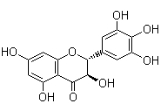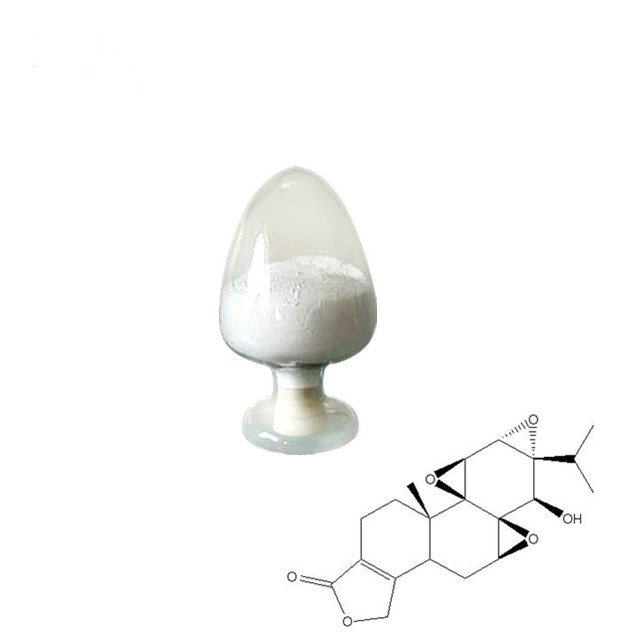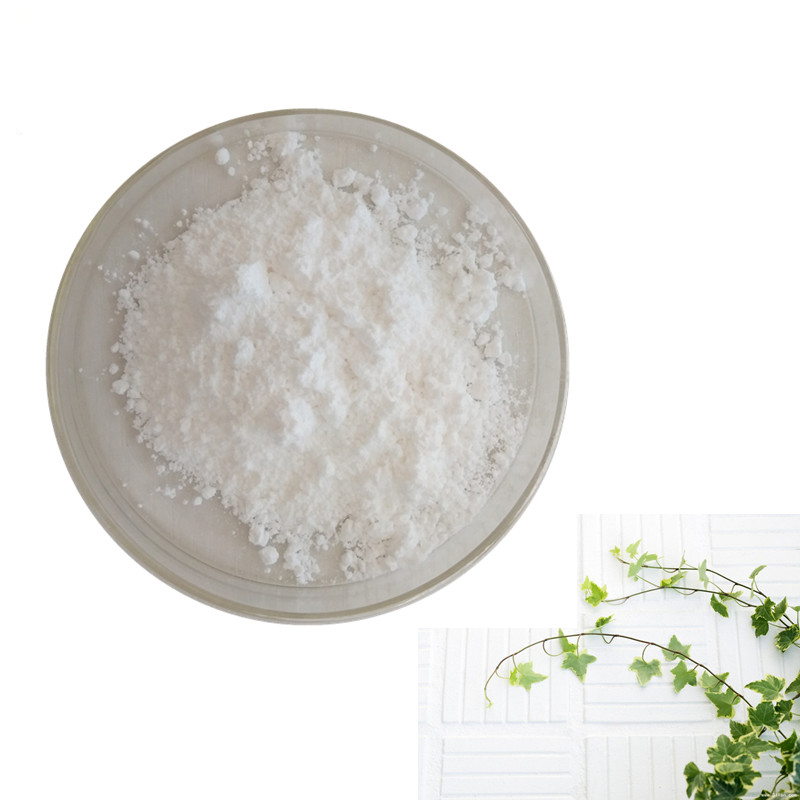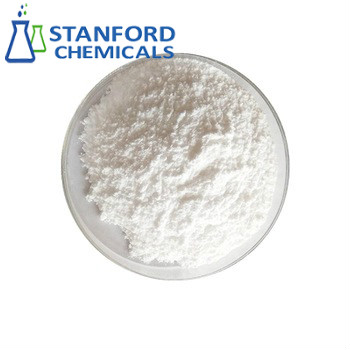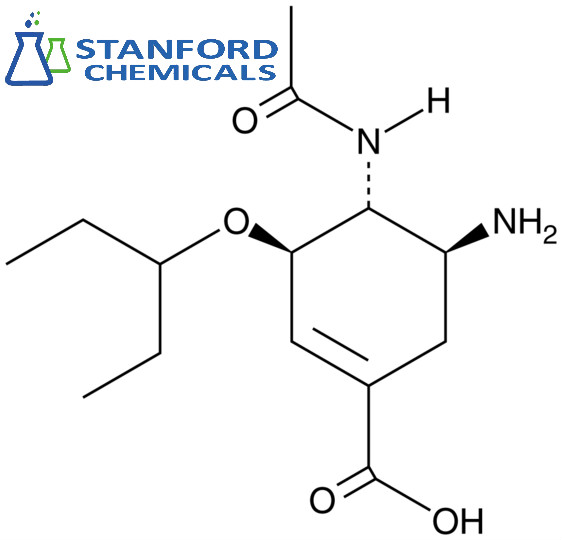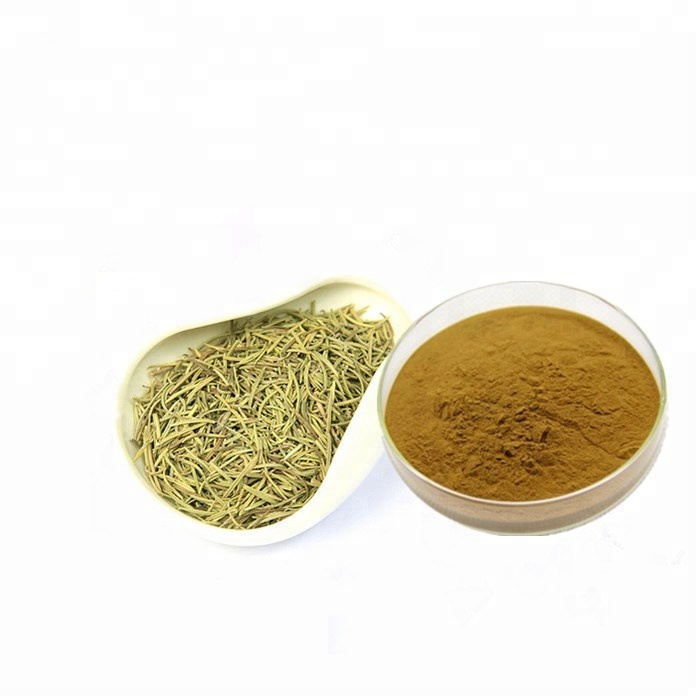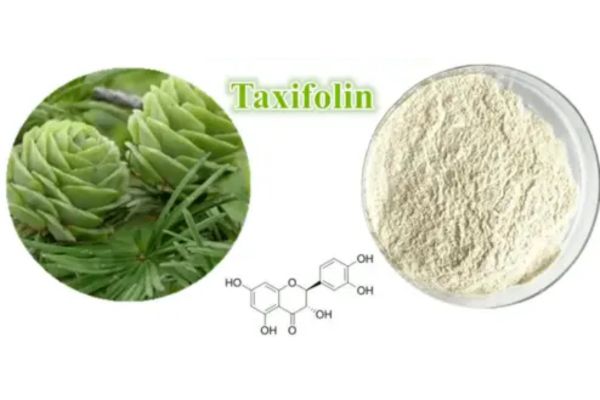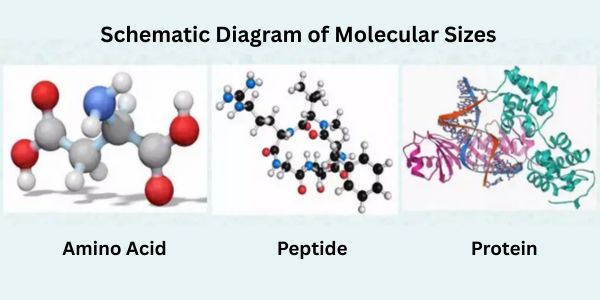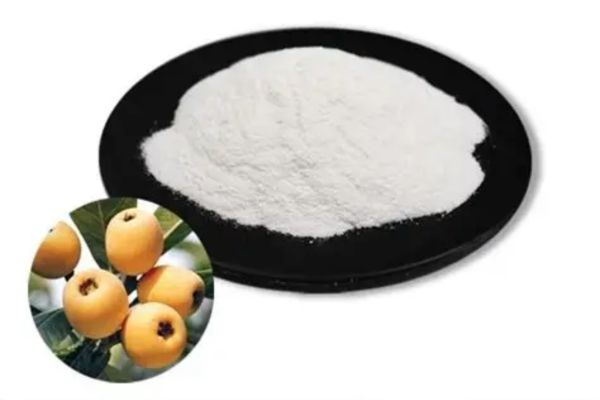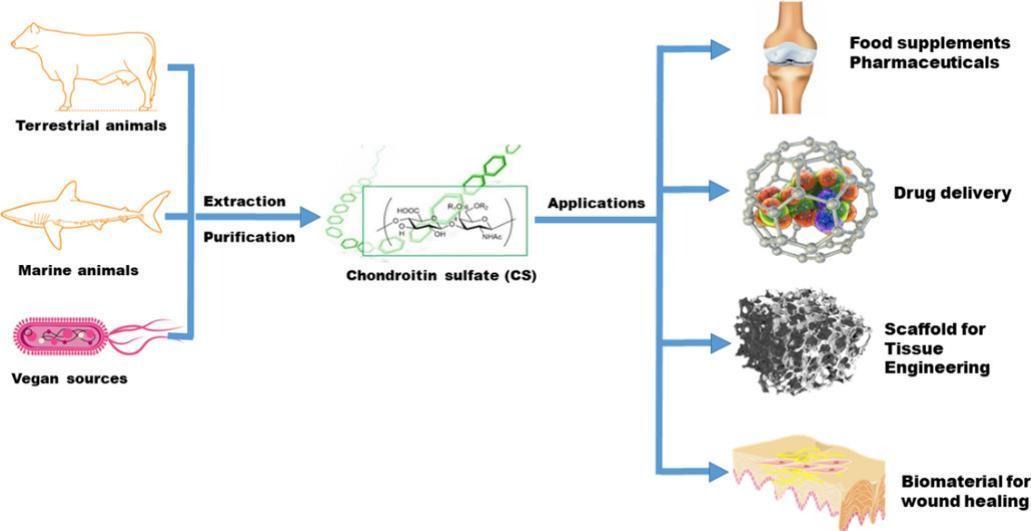Introduction
Chondroitin sulfate is a crucial component in the realm of joint health and cartilage support. Cartilage is a connective tissue responsible for cushioning joints and enabling smooth movement. With this intricate structure, chondroitin sulfate plays a pivotal role in maintaining structural integrity and resilience.
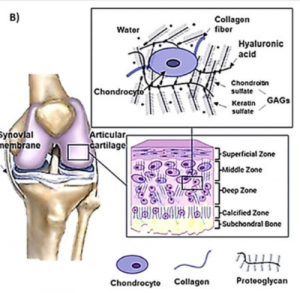
Cartilage Support in the Joint [1]
Therefore, chondroitin sulfate is a subject of extensive research and is a popular supplement in managing joint-related conditions. This article is going to have a detailed discussion about its properties and uses. Hope that you can have a better understanding.
What Is Chondroitin Sulfate?
Structure of Chondroitin Sulfate
Chondroitin sulfate is a sulfated glycosaminoglycan (GAG). GAG is a crucial component of cartilage, connective tissues, and various structural elements in the body. GAG’s structure and function contribute significantly to the maintenance of tissue integrity and elasticity.
- Molecular Composition: Chondroitin sulfate is a linear polysaccharide composed of repeating disaccharide units. Each unit comprises N-acetylgalactosamine and glucuronic acid. They are linked together in a specific arrangement.
- Sulfation: The disaccharide units undergo sulfation at different positions. Such sulfation mainly happens at the 4th and/or 6th carbon of the N-acetylgalactosamine residue. The varying patterns of sulfation give rise to different types of chondroitin sulfate.
- Chain Length and Variants: Chondroitin sulfate chains can vary in length and sulfation patterns. So, we have diverse molecular weights and forms. This structural variability influences its biological functions.
Function of Chondroitin Sulfate
The function of chondroitin sulfate encompasses pivotal roles in maintaining joint health and supporting the structural integrity of cartilage. Here's an in-depth look at its key functions:
- Cartilage Support: Chondroitin sulfate provides resilience and structural support to the tissue. It helps maintain the cartilage's hydration by attracting and retaining water molecules within the extracellular matrix. It also contributes to its cushioning properties.
- Joint Health: In joints, chondroitin sulfate assists in resisting compressive forces and provides elasticity to the tissues. In these ways, it promotes joint mobility and function.
- Biological Functions: It interacts with various biological molecules and cellular receptors. It contributes to cell signaling processes, cell adhesion, and the regulation of inflammatory mediators. So, it can potentially influence tissue repair mechanisms and modulate inflammatory responses in joint health.
- Anti-inflammatory Properties: Chondroitin sulfate possesses mild anti-inflammatory effects. It may inhibit certain enzymes involved in cartilage breakdown and help alleviate joint discomfort associated with inflammatory processes.
Related reading: Chondroitin Sulfate: Your Natural Solution for Osteoarthritis Relief
Role in Cartilage Health and Joint Function
In the context of joint health, chondroitin sulfate plays multiple roles.
- Firstly, it helps inhibit the activity of enzymes that degrade cartilage components. Thereby, it largely slows down the breakdown of cartilage associated with conditions like osteoarthritis.
- Additionally, it aids in maintaining the elasticity and resilience of cartilage, facilitating smooth joint movement, and reducing friction between bones.
- Furthermore, chondroitin sulfate may reduce joint inflammation and associated discomfort.
Related reading: Substances and Supplements for Joint Health
How Is Chondroitin Sulfate Used for Cartilage Support?
Scientific Evidence and Clinical Applications
Clinical studies have provided insights into the potential efficacy of chondroitin sulfate in managing joint disorders, particularly osteoarthritis. Such research showcases its impact on joint health and function.
--Symptomatic Relief:
Numerous trials have evaluated the use of chondroitin sulfate supplements in individuals with osteoarthritis.
Research indicates that chondroitin sulfate can contribute to symptomatic relief, including reductions in joint pain, and stiffness, and improved joint mobility. These effects are often observed over extended periods of consistent use.
--Joint Structure and Function:
There are many more studies employing imaging techniques, such as MRI assessments and joint space measurements.
They have suggested that chondroitin sulfate may help preserve joint structure and slow down the progression of joint degradation in osteoarthritis patients. This implies a potential protective effect on cartilage and joint tissues.
--Combination Therapies:
Some clinical trials have explored the benefits of combining chondroitin sulfate with other joint health compounds, like glucosamine.
Findings suggest that the combination might provide enhanced symptomatic relief and functional improvements compared to individual components alone.
--Long-Term Effects:
Research examining the long-term use of chondroitin sulfate supplements indicates a sustained benefit in managing joint-related symptoms over extended periods.
Studies spanning several years have reported continued improvements in pain reduction and joint function. They emphasize its potential for long-term joint health management.
Supplementation and Recommendations
However, while numerous studies have shown promising results, the overall evidence remains somewhat mixed. Some trials have reported more modest effects, while others have shown significant benefits.
Factors such as study design, participant characteristics, dosage, and treatment duration contribute to varying outcomes. Therefore, it is essential for further research and larger-scale clinical trials to establish clearer guidelines for its use in joint disorder management.
Besides, individual responses to supplementation can vary, and it's advisable to consult healthcare professionals for personalized recommendations, especially for those with existing medical conditions or taking other medications.
Future Directions and Conclusion
As research continues to evolve, the role of chondroitin sulfate in supporting cartilage health remains a subject of ongoing investigation.
Future studies seek to delve deeper into its mechanisms of action, optimal dosage, and potential synergistic effects with other compounds for enhanced joint support.
Conclusion
Overall, chondroitin sulfate is a valuable element in the maintenance of cartilage health and joint function. It offers promising avenues for managing joint-related conditions and enhancing overall mobility and well-being.
With a legacy spanning 16 years, Stanford Chemicals Company (SCC) specializes in research, development, manufacturing, and sales of chondroitin sulfate. Our offerings include pharmaceutical-grade and food-grade chondroitin sulfate. These products come from sources such as bovine and shark cartilage. Explore our website to reach out with any inquiries or interest in our products.


